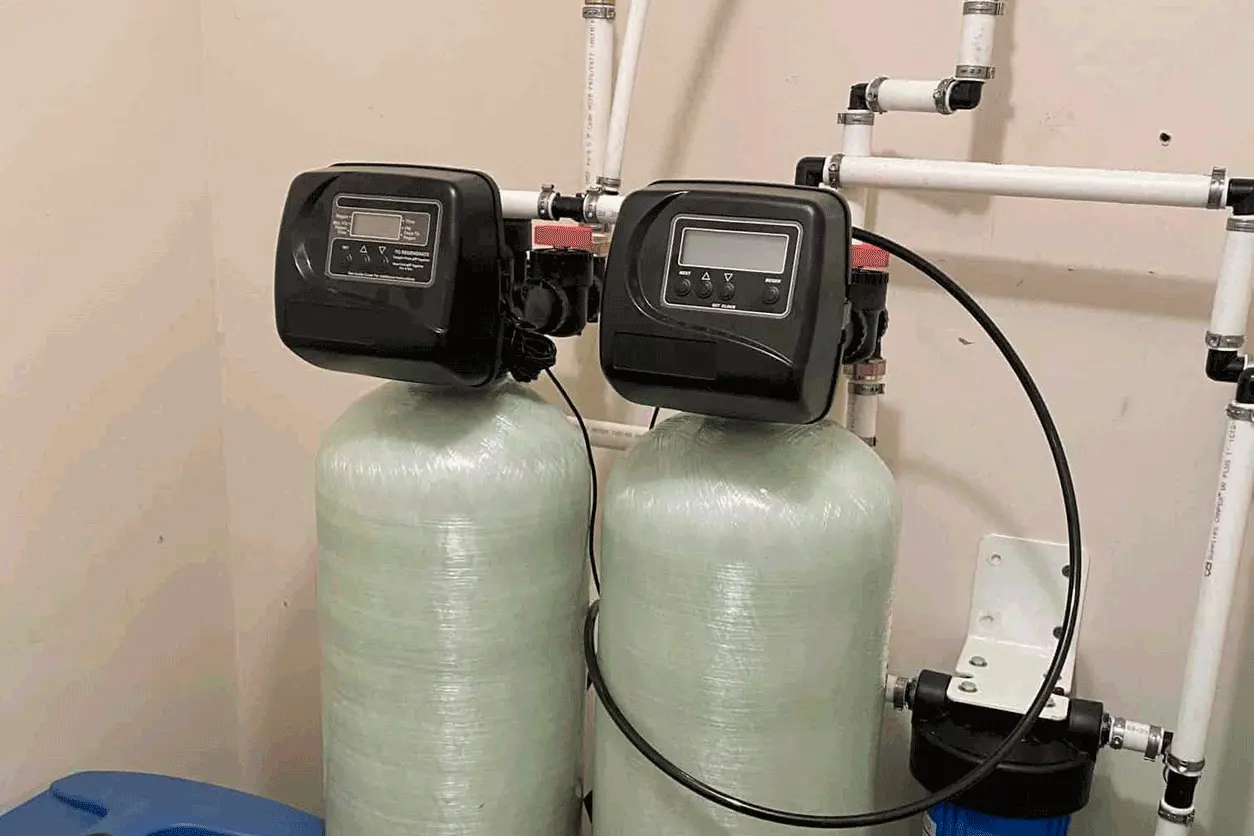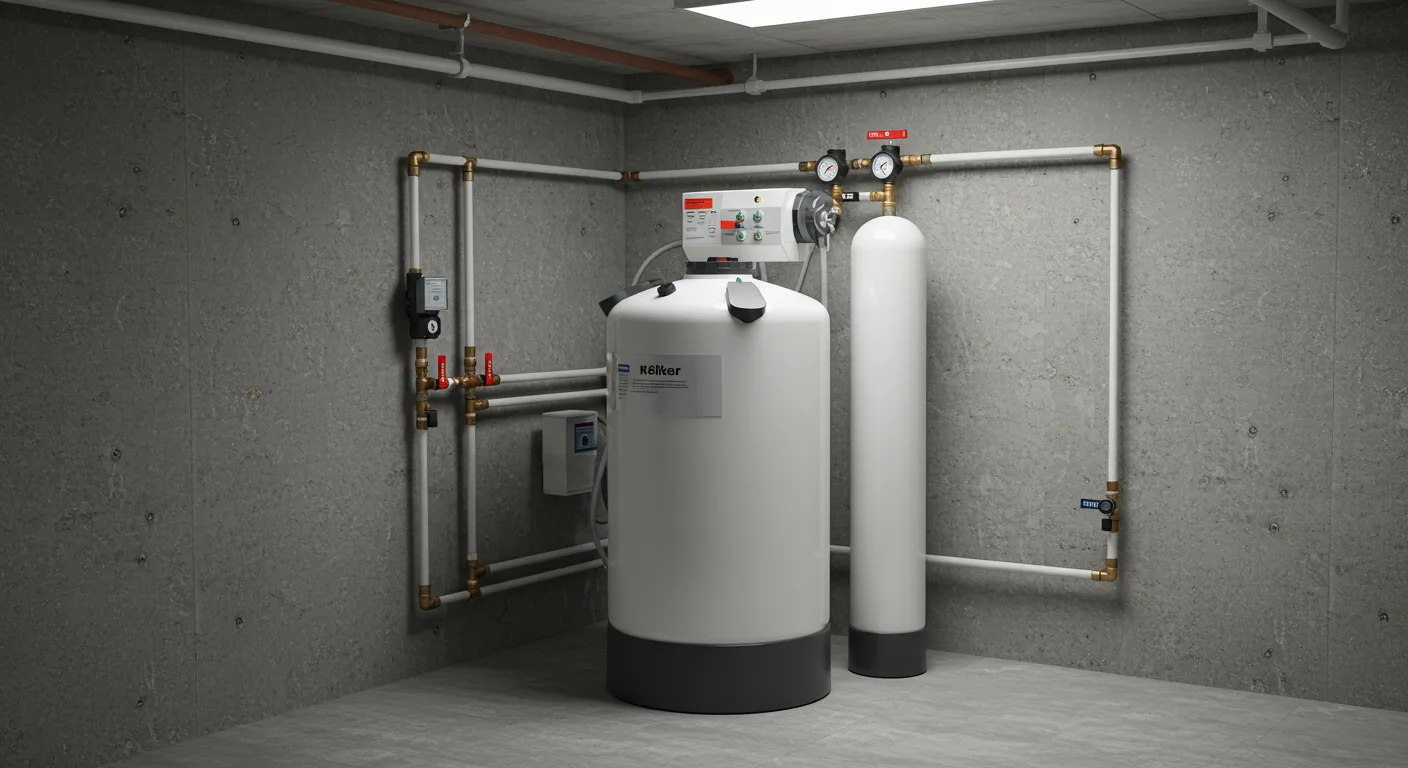Water Softener Installation in Agoura Hills, CA
Serving Ventura & Sacramento Counties

Water Softener Installation Agoura Hills, CA
Hard water is a common challenge for homes in Agoura Hills, CA. Mineral-rich supply—especially calcium and magnesium—leaves scale on fixtures, reduces appliance efficiency, dulls laundry, and increases soap usage. Proper water softener installation in Agoura Hills, CA protects plumbing and appliances, improves cleaning performance, and reduces long-term maintenance costs. This page explains the main softener options, how they work, sizing and regeneration choices, typical installation and plumbing needs, benefits, and recommended maintenance so you can make an informed decision.
Why Agoura Hills homes benefit from a water softener
- Local water sources often have measurable hardness that accelerates scale buildup in water heaters, dishwashers, and faucets.
- Warmer Mediterranean climate leads to more use of outdoor irrigation and water-using systems that can concentrate minerals in fixtures and irrigation equipment.
- Many homeowners want to preserve high-value plumbing and extend appliance life given the cost of replacements and local labor.
Water softener options and how they reduce hardness
- Salt-based ion-exchange softeners (most common): Hardness ions (calcium and magnesium) are exchanged for sodium or potassium on a resin bed. Periodic regeneration flushes the resin with a brine solution to restore capacity. Best for households that need measurable hardness reduction throughout the home.
- Salt-free conditioners (template-assisted crystallization, TAC): These systems alter mineral structure so calcium and magnesium form inert crystals that do not adhere as scale. They prevent scale but do not remove minerals. Good where sodium addition is a concern or for mild-to-moderate hardness.
- Dual-tank or continuous softeners: Two resin tanks allow one to be online while the other regenerates. Ideal for large homes or heavy water users who cannot tolerate downtime.
- Combination systems: Softening paired with whole-home filtration (sediment, carbon, or iron filters) when source water contains particulate, chlorine, or iron that would damage resin or reduce effectiveness.
- Electronic and magnetic devices: Performance is mixed and not a reliable replacement for ion-exchange in decision-stage installations.\

Sizing a water softener for your Agoura Hills home
Correct sizing is critical for performance and cost-efficiency.
- Test hardness in grains per gallon (gpg). Many local tests or a professional analysis will provide this reading.
- Estimate household daily water use: typical values are 60–100 gallons per person per day depending on lifestyle, irrigation, and appliances.
- Calculate daily grain removal need: gpg × gallons per day = grains per day.
- Choose a softener capacity that matches weekly regeneration needs. Standard residential sizes include 24,000; 32,000; and 48,000 grain capacities. For example, a 32,000-grain softener regenerating weekly should handle about 4,500 grains per day (32,000 ÷ 7).
Factors to consider in Agoura Hills: family size, irrigation cycles that increase outdoor water use (if irrigation is on the softened line), and whether the home uses municipal or well water. Well water often requires treatment for iron and sediment before a softener.
Regeneration types: timer vs metered (demand-initiated)
- Timer-based regeneration: Regenerates at preset intervals (daily/weekly) regardless of actual usage. Simpler but can waste salt and water.
- Demand-initiated regeneration (DIR): Uses a meter to track actual water use and regenerates only when capacity is reached. This saves salt and reduces waste, which is preferable for most Agoura Hills households aiming for efficiency.
Choose DIR when possible unless household usage is extremely predictable and consistent.
Typical installation process and plumbing requirements
- Location: Installed at the incoming main cold-water line, before the water heater, to protect plumbing and hot-water appliances from scale. Allow space for resin and brine tanks and salt refills.
- Bypass valve: A bypass is installed so the softener can be isolated for service without shutting off the home’s water.
- Drain and overflow: A dedicated drain line is required for regeneration discharge. Overflow protection and proper vertical drop to a drain or laundry sink are necessary.
- Electrical: The control head needs a standard outlet for timers and metering electronics. Ensure outlet placement near the unit.
- Pre-treatment: Sediment filters protect resin and control valves. If iron is present, an iron removal system is typically required before the softener to prevent resin fouling. Chlorine in municipal water can shorten resin life; a carbon filter may be needed.
- Backflow prevention and local code: Some jurisdictions and HOAs have regulations around water treatment, backflow devices, or discharging regeneration brine. Confirm local plumbing codes and HOA rules before installation.
- Pressure and piping: Verify inlet pressure and pipe size. A softener can affect flow rates; larger homes may need larger tanks or dual-tank setups to maintain adequate flow.
Benefits for appliances, plumbing, and household life
- Longer appliance life: Less scale in water heaters, dishwashers, washing machines, and coffee makers preserves efficiency and reduces repairs.
- Improved energy efficiency: Scale reduces heat transfer in water heaters. Softened water helps maintain optimal efficiency, lowering energy use.
- Cleaner surfaces and linens: Softer water reduces soap scum, leaves faucets and shower doors cleaner, and makes laundry brighter and softer.
- Reduced plumbing maintenance: Fewer scale-related clogs in pipes and fixtures, extending the lifespan of valves and faucets.
- Lower detergent usage: Less soap and detergent required for washing and bathing.
Note: Softened water contains additional sodium if sodium chloride is used for regeneration. Potassium chloride is an alternative, and for drinking water you can pair a point-of-use reverse osmosis system to remove residual sodium.
Maintenance schedule and long-term care
- Monthly: Check salt level in the brine tank and top up as needed. Inspect for salt bridging (a hard crust) and break it up if found.
- Every 3–6 months: Inspect drain lines, check for leaks, and confirm control head settings. Test water hardness at a tap to ensure system performance.
- Annually: Service check by a qualified technician—clean resin if iron is present, verify metering accuracy, and sanitize tanks if needed. Replace pre-filters (sediment/carbon) per manufacturer recommendations.
- Every 10–15 years: Resin replacement may be necessary depending on water quality and maintenance. Control valves and timers can last longer but may require replacement based on wear.
Preventive steps: Install a sediment filter on well water and an iron removal system if tests show iron levels above the resin tolerance. Use DIR regeneration to conserve salt and reduce wear.
Common issues and troubleshooting
- Salt bridge or salt mushing: Prevents proper brine draw; break up salt and use high-quality salt.
- Resin fouling from iron or organics: Pre-treatment prevents this; resin cleaning or replacement may be required.
- Low water pressure: Often due to clogged sediment filters or undersized plumbing; evaluate flow demands and piping.
- Excessive sodium concerns: Switch to potassium chloride or add a point-of-use RO system for drinking water.
Proper installation and correct system selection tailored to Agoura Hills water conditions ensure maximal benefit. A well-sized, properly plumbed, and routinely maintained softener reduces scale, protects plumbing, and saves money over time while improving everyday comfort in your home.
Protect Your Home with Professional Water Softener Installation
Hard water is more than an annoyance—it shortens appliance life, clogs plumbing, and leaves behind a stubborn scale. In Agoura Hills, where mineral-rich water is common, a properly sized and installed water softener keeps your water heater, dishwasher, and fixtures running efficiently while giving your family softer laundry, cleaner dishes, and smoother skin.
Our experts design and install the right system for your home—whether you need a salt-based ion-exchange softener for full hardness reduction or a salt-free conditioner to prevent scale without added sodium. Every installation includes correct plumbing placement, code-compliant bypass and drain connections, and setup for efficient demand-based regeneration, so you save water, salt, and money.
Don’t let scale damage your home. Schedule your Water Softener Installation in Agoura Hills today with AirWorks Solutions and enjoy cleaner, softer water that protects your plumbing and appliances for years to come.


